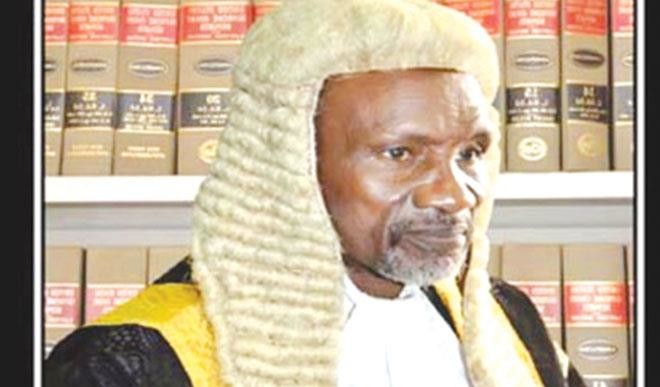Courts vacation and anti-corruption war
This year’s judicial annual long vacation has begun, marking the end of the 2015/2016 legal year. The vacation will end in September. While some analysts have criticised the two months’ vacation, especially coming at a time several corruption cases are going on in the courts, others argue that it is necessary for judges to refresh […]


This year’s judicial annual long vacation has begun, marking the end of the 2015/2016 legal year. The vacation will end in September.
While some analysts have criticised the two months’ vacation, especially coming at a time several corruption cases are going on in the courts, others argue that it is necessary for judges to refresh after an arduous year on the bench.
The President Muhammadu Buhari-led administration has made the anti-corruption fight a major thrust of its government. As a result, the trial of public officials allegedly involved in corruption has been gaining momentum.
For instance, the trial of Senate President, Bukola Saraki, his deputy, Ike Ekweremadu, a former Clerk of the National Assembly, Salisu Maikasuwa, and his deputy, Benedict Efeturi, over alleged forgery of the Senate Standing Order has been adjourned to September 28.
The various “armsgate” trials involving former National Security Adviser, Sambo Dasuki, the former scribe of People’s Democratic Party (PDP), Olisa Metuh, former Chief of Defence Staff, Alex Badeh, among others at different stages and different high courts in the Federal Capital have also been stalled as a result of the judges’ holiday.
Also affected by the courts’ vacation are ongoing proceedings at the Code of Conduct Tribunal (CCT). Most notably is the trial of the Senate President Bukola Saraki for alleged false and anticipatory assets declaration.
Had the trial continued on July 13th as scheduled, Saraki would have known the outcome of his motion for disqualification of the presiding judge.
Saraki had on June 21, through a motion filed by his counsel Paul Erokoro (SAN) on June 13 sought for an order of the tribunal directing its chairman to recuse himself from further participation in the trial of the defendant.
The Tribunal had also scheduled to pass judgment on the case of alleged false assets declaration by former minister of Niger Delta Affairs, Godsday Orubebe on July 19, but had to reschedule due to the vacation.
Orubebe, who was arraigned by the Code of Conduct Bureau (CCB), at the CCT last year November for alleged false asset declaration on his plot number 2057 of Cadastral zone Asokoro, Abuja, now has to wait for two months to know his fate.
The judgement earlier slated for June 30, 2016 could not hold due to the absence of the chairman of tribunal, Justice Danladi Umar, and was thus rescheduled for July 19 which falls within the period of the vacation.
The Head of CCT’s Press & Public Relations Department, Ibraheem Al-Hassan, has on Tuesday July 12 said in a statment that the Tribunal had adjourned all sittings scheduled for the months of July and August till the end of the judges’ recess.
Some of the other major cases that have suffered from this setback include the trial of former governor of Taraba State, Jolly Nyame, which had been on and off since 2007; and the trial of former Plateau State governor, Joshua Dariye, also put on hold.
A lawyer that doesn’t want her name in print asked why judges must take their vacations at the same period and not at different periods as other civil servants do.
She further wondered “what will happen if say the entire doctors or police in the FCT decide to fix their vacations at the same time and decide to have a couple of them stay back as it is the case with vacation judges?”
Also speaking, Barrister Innocent Onwu said the delay in these important cases as a result of the vacation may actually amount to a denial of justice.
“Until after the vacation, no existing case will move an inch forward, save for extraordinary emergency,” he said.
But Barrister Abel Ozioko, says the annual vacation was very important and lawyers looked to it every year to relieve their stress.
“Lawyers and judges deserve rest whether there are corruption cases or no corruption cases,” he said. “In other cases, there are vacation judges. It is in the interest of expeditious trial to wait until after the vacation because it is just a month or two. If it goes before another judge, it will commence de novo. It is a question of more haste, less speed.”
Nigerians hope at the return of the judges to the bench they will be refreshed and energized to drive the wheel of the anti-corruption carriage.
